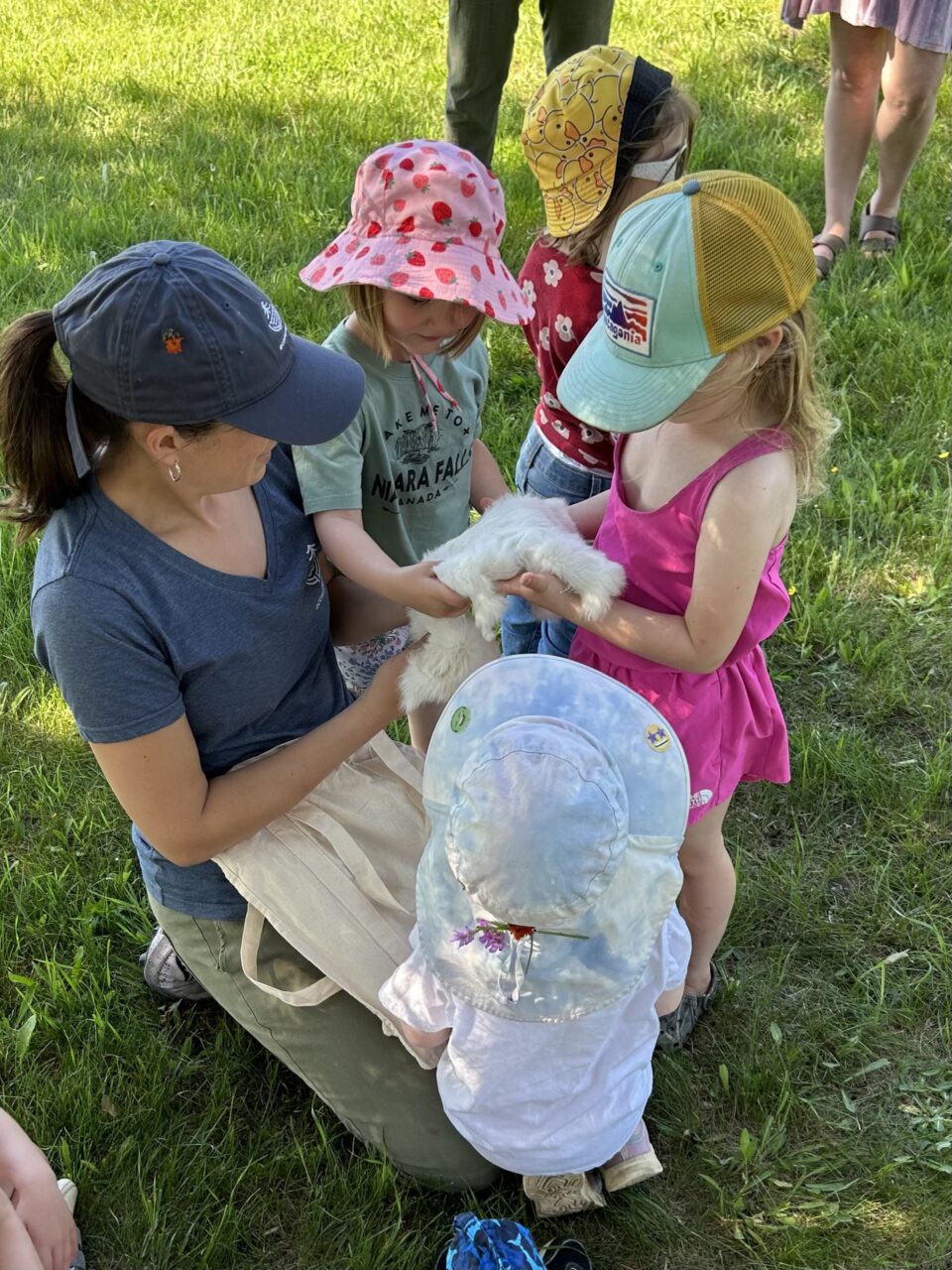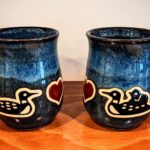EcoSuperior is an environmental non-profit organization based in Thunder Bay. Their mission is to build a healthy future for people and the planet. Sound inspiring? EcoSuperior has existed as a guiding force for environmental change in Thunder Bay and beyond since 1995. Today, EcoSuperior’s eight staff members and hundreds of volunteers implement hands-on programs in the fields of water quality and stormwater management, biodiversity and wellness, active transportation, waste reduction and litter prevention, environmental education, and energy conservation to produce change that benefits people and the surrounding environment. Here’s how EcoSuperior empowers individuals, groups, and communities to take meaningful action on environmental issues.
Ashley Priem, co-executive director of EcoSuperior along with Erin Moir, has been with EcoSuperior since its inception in 1995, with a nine-year hiatus in the middle to raise her children. Priem says EcoSuperior thrives at motivating people and showing them how to make changes in their everyday lives to benefit the environment around them. “Our focus has always been at the individual level, and then the community level,” Priem explains. “People are often paralyzed, asking, ‘What can we do for the environment?’ We really focus on actionable items that individuals and homeowners can do.”
Take EcoSuperior’s Adopt a Storm Drain program, for example. Thunder Bay has 14,000 storm drains available for adoption. To adopt a storm drain, citizens simply clean out debris and trash that get clogged in the drains in their local neighborhood. This can help keep aquatic ecosystems clear of leaves, trash, and other toxic debris. It also protects neighborhoods from excess stormwater flooding.
Taking storm drain maintenance one step further, EcoSuperior installed 16 LittaTraps in drains around Thunder Bay in spring 2024. These devices sit inside storm drains and capture litter before it reaches Lake Superior. Urban runoff is the main pathway by which plastic pollution enters the Great Lakes, especially during spring snow melt. Water flows over paved surfaces and picks up pollutants like fertilizers, oil, and physical pollution, and these contaminants flow into storm drains that often lead directly to local waterways without any treatment. Every month during the summer, EcoSuperior collects and quantifies the litter in the LittaTraps. Doing storm drain filtration provides better understanding of pollution patterns in Thunder Bay.
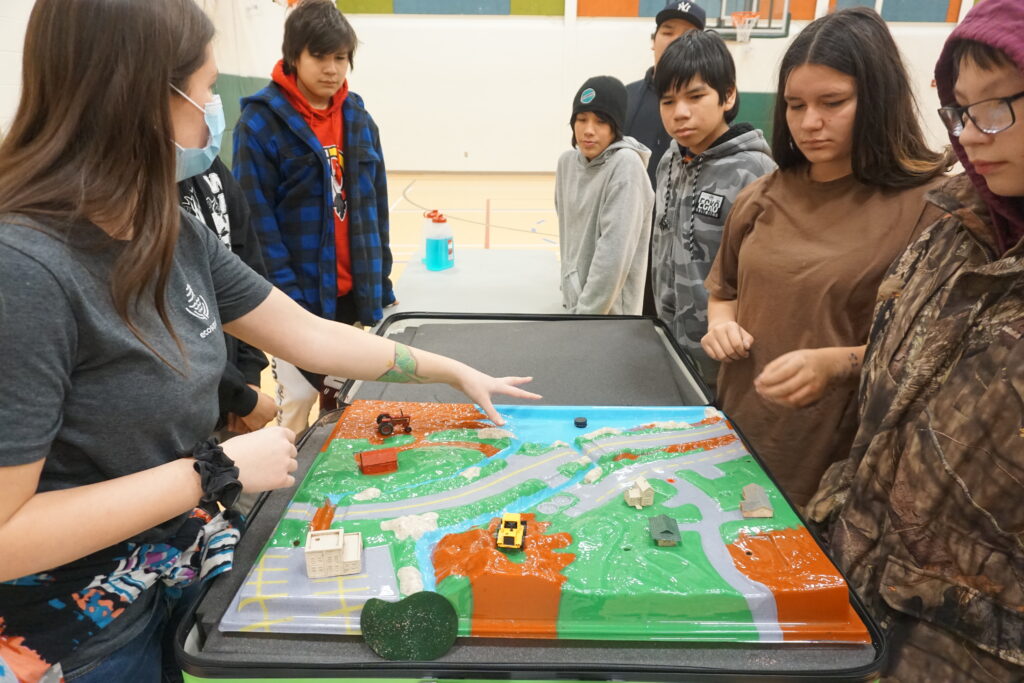
EcoSuperior also promotes healthy water quality through its rain garden rebate program. Open to Thunder Bay residents, the program provides reimbursement of up to $625 for plants and other landscaping supplies purchased by homeowners who install a rain garden on their property. What is it? A rain garden consists of a shallow, bowl-shaped depression formed along the natural slope of a landscape, generally composed of loose and deep soil, native perennial shrubs, grasses, and flowers. These features help soak up and clean contaminated runoff before it enters the nearest waterway. For Priem: “We help motivate and support people to implement green infrastructure through their own home rain gardens.” As a result, less water enters the storm drain system, which prevents toxins, microplastics, and other pollutants from reaching every drain’s end destination—Lake Superior.
Another program, Walk or Wheel Thunder Bay (WOW TBay), is EcoSuperior’s active transportation program that promotes kids biking and walking to school. It is part of the province-wide Ontario Active School Travel project supporting families to enjoy the physical, mental, and emotional benefits of having an active journey to and from school. Being active outdoors is crucial to EcoSuperior’s mission of building a healthy future for people and the planet.
Priem states that “transportation and your diet” are the things people personally control that most affect global warming. Not idling our cars more than 30 seconds (“Idling gets you nowhere,” and “Idling is fuelish” are two slogans used by EcoSuperior), prioritizing active transportation, and eating plant-based foods are all things we can personally do to combat climate change. “Those ones, I have to admit, are the most challenging for people,” says Priem. “It’s sometimes really hard to find out what someone’s currency is in order to change their behavior.”
But for Priem, “We still feel there’s value in what we’re doing. We’re a community resource. That’s what keeps us motivated.”
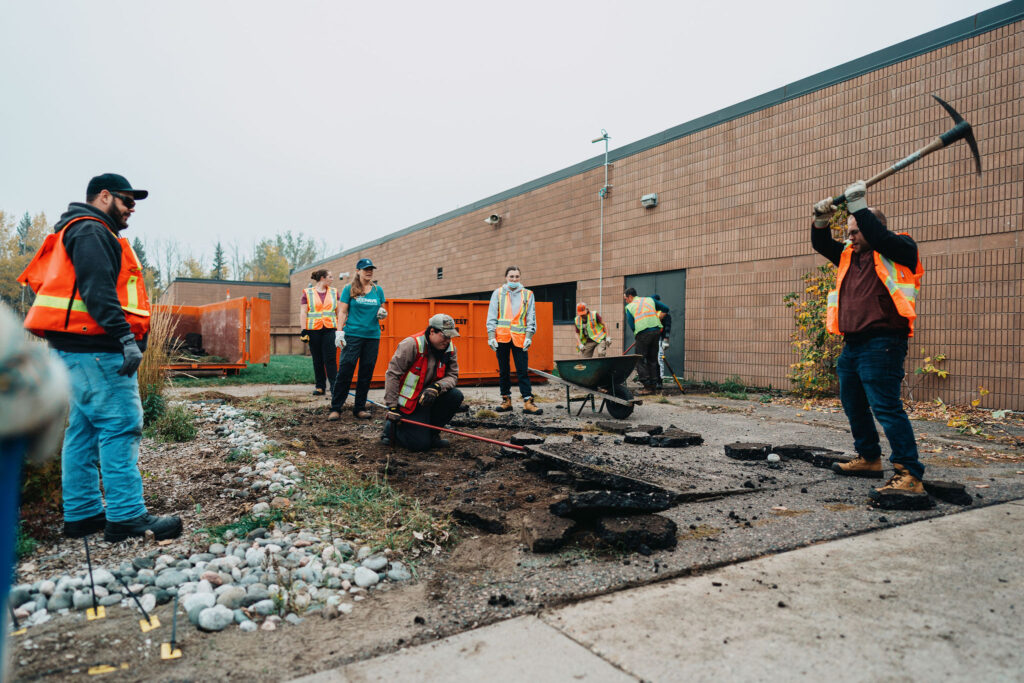
EcoSuperior is proud to offer an array of education programs, too, making presentations in schools. Educational presentations like “Water Watchers,” “Winter Walkers,” “Pollinator Pals,” “Wild about Worms,” and “Keep it Superior” are all given to elementary school students. Secondary school students get deeper presentations on topics such as “Natural Habits: The truth behind personal care products,” and “Plastic and Learned Behavior: Reversing our plastic habit.” These programs are developed using Ontario’s Ministry of Education curriculum documents.
The EcoSuperior team works in a broader region than just Thunder Bay. “Sometimes we get provincial funding or federal funding, and then we’ll go further,” says Priem. “We’ll go to the North Shore communities. We’ve gone to Terrace Bay, Schreiber, Marathon, Nipigon, and Red Rock.” Priem is also proud of EcoSuperior’s work with Indigenous communities. “We’ve also been working with NAN: Nishnawbe Aski Nation. They represent 49 Indigenous communities in the province. They’ve contracted us recently to deliver some of our water education programs into their school communities. So we either drive in or fly in and then spend a whole day, sometimes two or three days, doing water programming with them. We’re trying to do more of looking at our programs through an Indigenous lens, not a Colonial one.” For Priem, “Having opportunities to partner with Indigenous organizations and various elders has been really amazing.”
EcoSuperior has never had a core source of funding. “We’ve just really been fortunate that we’ve had some consistent partners. Considering for 30 years we’ve never had core funding, to be in existence this long is pretty incredible,” explains Priem. One source of income is the organization’s online shop, which sells low-waste items, merchandise, and rain collection barrels. Overall, the not-for-profit raises a funding mélange, including from the City of Thunder Bay, utility companies, provincial funding, and federal funding from Environment and Climate Change Canada. Finally, EcoSuperior is part of an umbrella organization called Green Communities Canada, which also has given funding before.
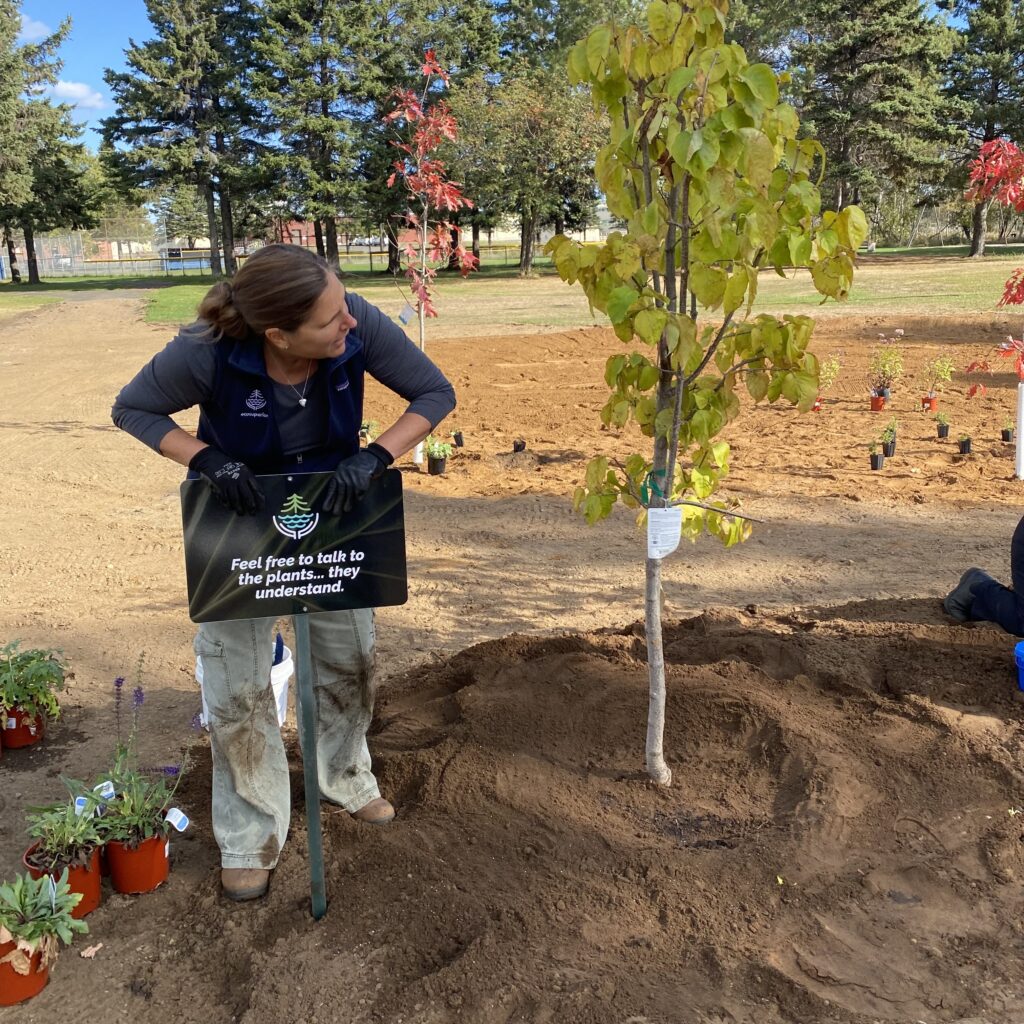
With spring right around the corner, EcoSuperior will be busy. “Come April, we have the Adopt a Storm Drain program which ramps up, and then we have our longest-running program, funded by the city: Spring Up to Clean Up. That’s our annual community cleanup event, and it runs the whole month of May. If you’d have told me before that people love to pick up litter and be a part of this, I would have had my doubts. But we have about 10,000 people every year who form neighborhood action groups and go pick up trash,” recounts Priem.
Overall, EcoSuperior provides hope in a better tomorrow. “Even just being that resource that people can call—sometimes people just need to be heard and listened to, right?” says Priem. “It’s not like we can solve all of the problems, but just knowing that there’s other likeminded individuals out there is important. We offer actionable items that people can feel good about.”
To volunteer for Spring Up to Clean Up, shop at EcoSuperior’s online shop, install a home rain garden, or take part in EcoSuperior’s other environmental programs, visit: ecosuperior.org. And go find your local storm drain—they’d love to be adopted.


